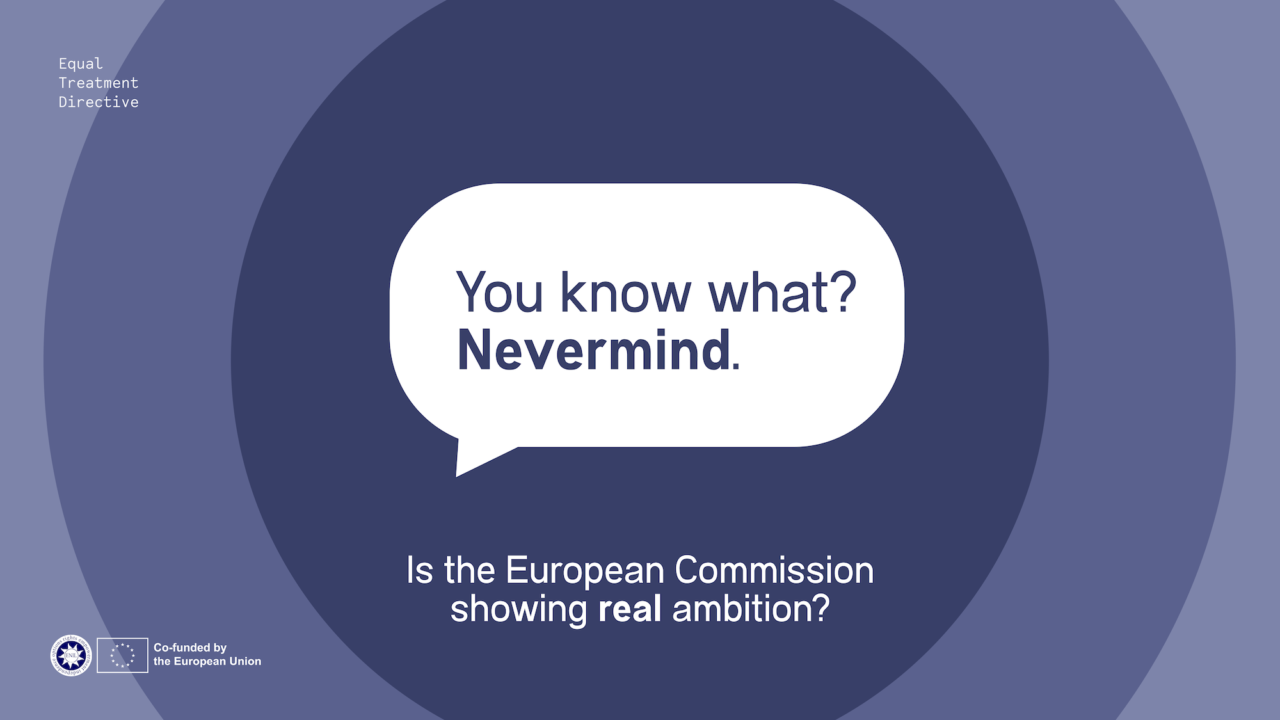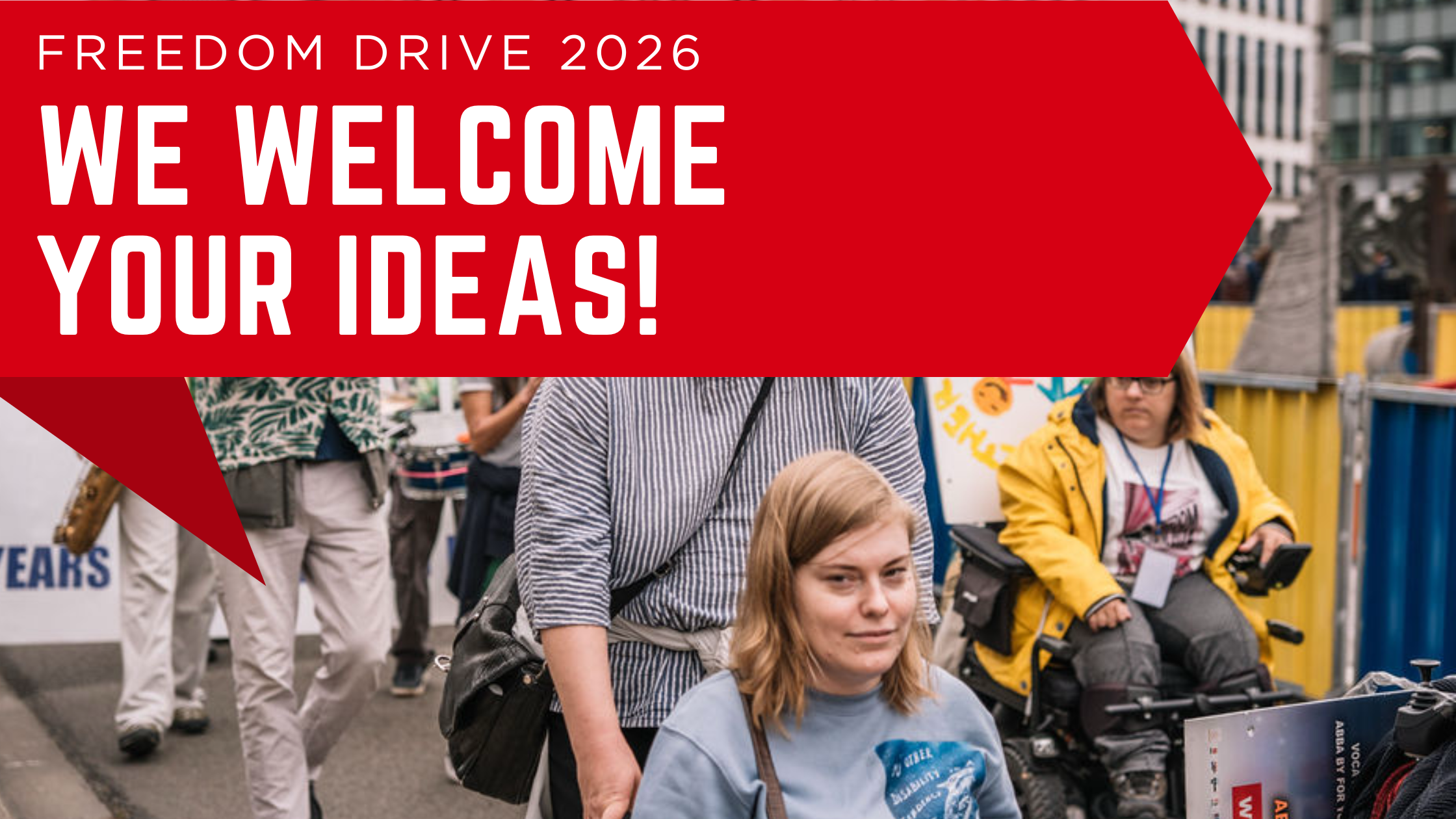The statement can be downloaded here in pdf and here in word
The European Commission has decided to reverse its earlier decision to withdraw the proposal for a directive on equal treatment. Since this legislation is urgently needed, the European Network on Independent Living (ENIL) welcomes the continuation of negotiations. However, we believe that greater ambition is required than simply moving forward with the proposal in its current form. We recommend strengthening and raising the quality of the directive.
Protecting all disabled people from discrimination
Disabled people face multiple and intersecting forms of discrimination. It is therefore essential to close existing legislative gaps. For ENIL, it would be a missed opportunity if the directive were to focus only on disabled people living outside institutions. Those who are confined to institutional settings are, in fact, among the most severely discriminated against.
Deinstitutionalisation in deadlock
By ratifying the UN Convention on the Rights of Persons with Disabilities (CRPD), the EU committed to supporting deinstitutionalisation—i.e., the abolition of all living arrangements that restrict disabled people’s choice and control over their lives. This obligation is reinforced by the European Strategy on the Rights of Persons with Disabilities and by the Commission’s Guidance to Member States on Independent Living and Inclusion in the Community.
Yet progress has stalled. Independent research shows that in 2007, 1.2 million disabled people were confined to institutions, and by 2020 that number had risen to 1.4 million. There is often speculation and confusion as to why deinstitutionalisation is not advancing. For ENIL, the reasons are many but clear. A lack of political will to invest in community-based services is a major obstacle.
Another frequently overlooked cause is the discrimination residents face when trying to qualify for community services. For example, ENIL’s 2022 Independent Living Survey found that 74% of respondents reported people living in residential care cannot apply for personal assistance.
The role of the Equal Treatment Directive
The directive aims to ban discrimination on the grounds of religion, disability, age, and sexual orientation in key areas: social protection (including social security and healthcare), education, and access to goods and services, including housing.
Access to these services—when provided in the community—is essential for enabling disabled people to move out of institutions. The directive therefore provides a critical opportunity to ensure that residents of institutions are not discriminated against in accessing them. In particular, access to income and housing are vital prerequisites for independent living.
Our proposal: bringing anti-discrimination to the next level
We propose adding amendments to the directive to ensure that disabled residents of institutions are explicitly protected from discrimination when seeking access to:
- social protection (including social security and healthcare),
- education, and
- goods and services, including housing, when provided in the community.
It is essential that these services are made available outside institutional settings. Residents of institutions must also receive reasonable accommodations when applying for services. For example, they may be unable—or not permitted—to travel to the relevant public authority’s office. In such cases, transportation and assistance should be provided, or officials should be required to visit the institution.
In the context of this directive, personal assistance and personal budgets must be recognised as social protection services.
Implementing the UN CRPD
General Comment No. 5 and the Guidelines on Deinstitutionalisation, including in Emergencies, call on States Parties to create the necessary community-based services. Incorporating our proposal into the directive would grant disabled people confined to institutions a de jure right to access the services required to leave them. This would mark a decisive step towards fulfilling Article 19 of the CRPD.
Call to action
We call on all stakeholders—the European Commission, national governments, Members of the European Parliament, and civil society organisations—to seize this opportunity and ensure that disabled people inside as well as outside institutions are fully protected from discrimination.
ENIL will continue to develop its position and present detailed amendments in the autumn.
For additional input please visit www.enil.eu or contact:
Florian Sanden
ENIL Policy Coordinator, florian.sanden@enil.eu
Contact information
ENIL Brussels Office vzw/asbl Mundo J – 6th Floor Rue de l’Industrie 10 1000 Brussels, Belgium



Co-funded by the European Union. Views and opinions expressed are however those of the author(s) only and do not necessarily reflect those of the European Union or the European Commission. Neither the European Union nor the granting authority can be held responsible for them.



